INTERNACIONAL
British PM Keir Starmer moves UK military into ‘war-fighting readiness’

NEWYou can now listen to Fox News articles!
British Prime Minister Keir Starmer announced Monday that he is moving the United Kingdom’s military into «war-fighting readiness» to address growing threats from Russia.
During a visit to BAE Systems’Govan facility, a navy ship-building yard in Glasgow, Scotland, the prime minister laid out «three fundamental changes» to be made in response to the country’s strategic defense review.
«First, we are moving to war-fighting readiness as the central purpose of our armed forces,» Starmer said. «When we are being directly threatened by states with advanced military forces, the most effective way to deter them is to be ready. And frankly, to show them that we’re ready, to deliver peace through strength.»
‘MAKE NATO GREAT AGAIN’: HEGSETH PUSHES EUROPEAN ALLIES TO STEP UP DEFENSE EFFORTS
Starmer continued, «Now Britain has the finest service men and women in the world. We’re showing them the respect that they deserve by delivering the biggest armed forces pay rise in 20 years and by pledging today that we will end the hollowing out of our armed forces. «We’ll build a fighting force that is more integrated, more ready, more lethal than ever, backed by a stronger strategic reserve, fully trained and ready to mobilize at any time.»
Britain’s Prime Minister Keir Starmer delivers a speech during a visit to the BAE Systems’Govan facility, in Glasgow, Scotland, on Monday, June 2, 2025. (Andy Buchanan, Pool Photo via AP)
The new approach comes as President Donald Trump has warned European nations to take more responsibility for their own security. Starmer’s announcement focused on a «new era» of threats, citing the war in Ukraine, new nuclear risks and «daily cyberattacks,» as well as reversing the post-Cold War defense decline. He called out «growing Russian aggression» in U.K. waters and skies, blaming «their reckless actions» for the increased cost of living «hitting working people the hardest.»
«The threat we now face is more serious, more immediate and more unpredictable than at any time since the Cold War,» Starmer said.
The U.K. government announced military plans in response to a strategic defense review commissioned by Starmer and led by George Robertson, a former U.K. defense secretary and NATO secretary general.
It’s the first such review since 2021. Months after Britain’s last major defense review was published in 2021, then-Prime Minister Boris Johnson said with confidence that the era of «fighting big tank battles on European landmass» are over. Three months later, Russian tanks rolled into Ukraine. Starmer’s center-left Labour Party government says it will accept all 62 recommendations made in the review, aiming to help the U.K. confront growing threats on land, air, sea and in cyberspace.
The second change, Starmer explained from Scotland, is ensuring «everything we do will add to the strength of NATO.»
«As we step up to take greater responsibility for our collective defense, the NATO alliance means something profound, that we will never fight alone,» Starmer said. «It is a fundamental source of our strategic strength. That’s why our defense policy will always be NATO first, something that’s written through this review. The transformation we are driving in our defense must add up to Britain’s biggest contribution to NATO since its creation. So that when we’re building new capabilities at home, we are making our allies safer too, strengthening Europe, and strengthening our bridge to the US as Britain’s first partner in defense.»
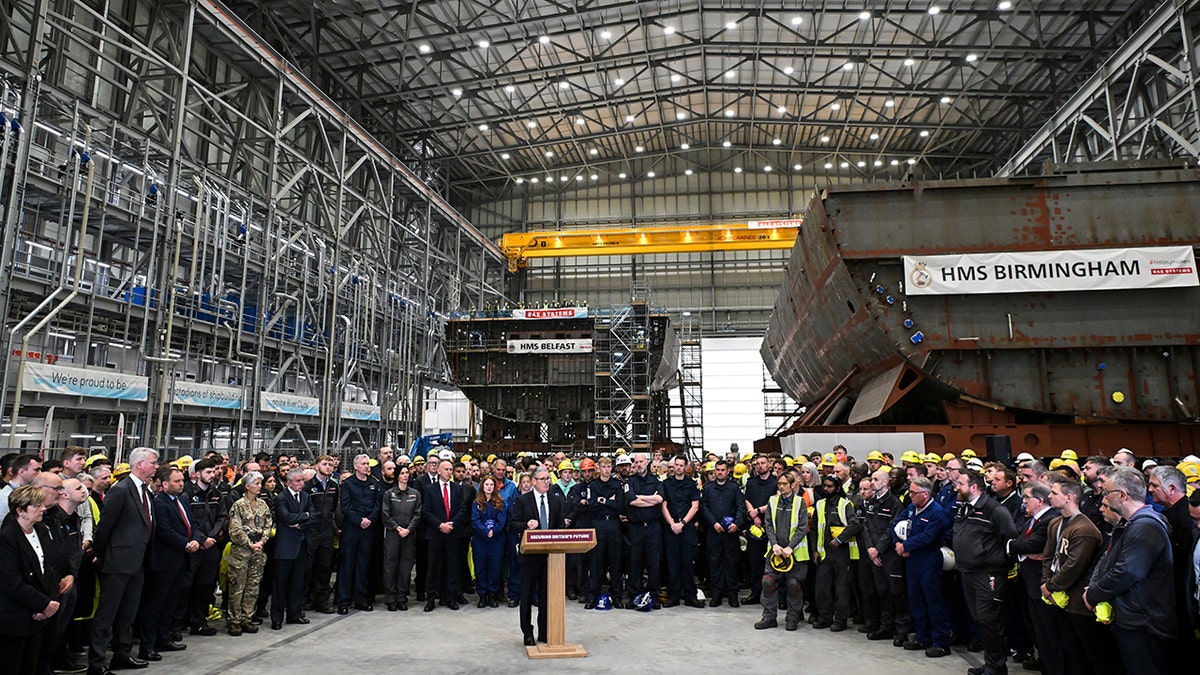
Britain’s Prime Minister Keir Starmer delivers his speech during a visit to the BAE Systems’Govan facility, in Glasgow, Scotland, on Monday, June 2, 2025. (Andy Buchanan, Pool Photo via AP)
RUBIO DEMANDS NATO PONY UP, DISMISSES ‘HYSTERIA’ OVER US ROLE UNDER TRUMP
The third change laid out by Starmer is for the U.K. to «innovate and accelerate at a wartime pace so we can meet the threats of today and of tomorrow as the fastest innovator in NATO.» He said such advancements would not mean «replacing people» or hardware, but would rather mean «learning the lessons of Ukraine» and ensuring «every capability we have works seamlessly together.»
«Drones, destroyers, AI, aircraft, each different branch of our armed services, fully integrated to create an army which is 10 times more lethal by 2035,» Starmer said.
The U.K. government said it’s expanding the country’s armed, nuclear-powered submarine fleet with up to 12 new SSN-AUKUS boats through a partnership with Australia and the United States. The government also says it will invest 15 billion pounds in Britain’s nuclear arsenal, which consists of missiles carried on a handful of submarines. Details of those plans are likely to be kept secret.
Starmer has already pledged to increase defense spending to 2.5% of GDP by 2027, a boost from the current 2.3%, and to eventually get that up to 3%.
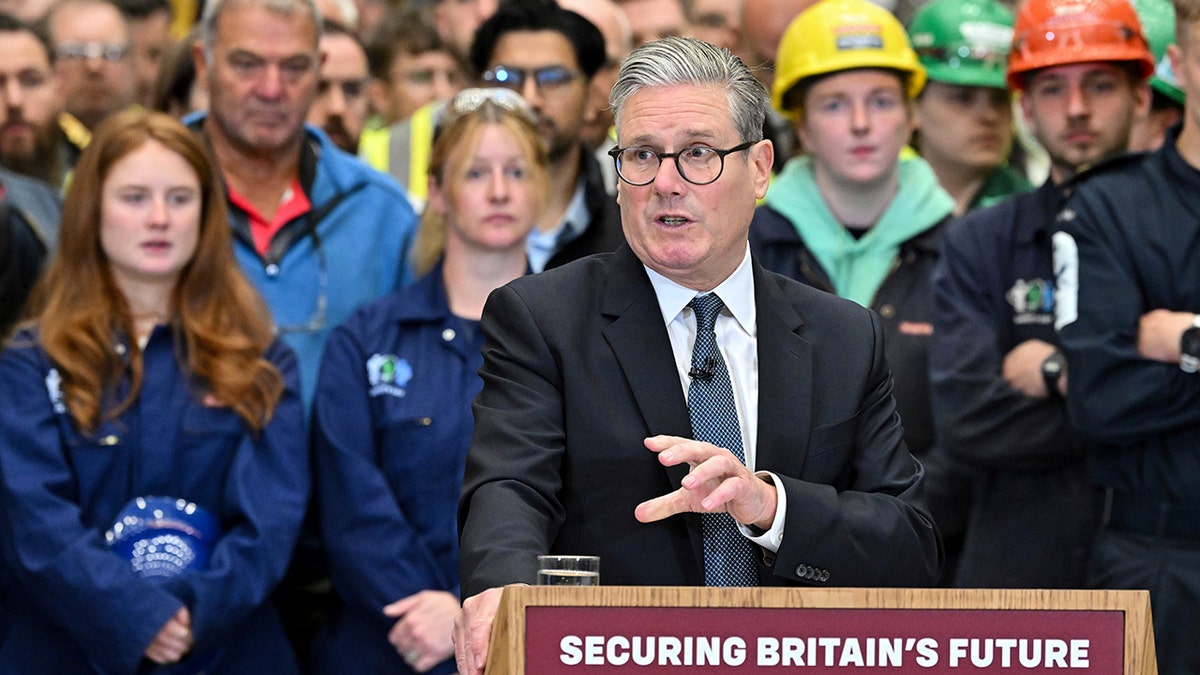
Britain’s Prime Minister Keir Starmer delivers his speech during a visit to the BAE Systems’Govan facility, in Glasgow, Scotland, Monday June 2, 2025. (Andy Buchanan, Pool Photo via AP)
GB News noted at the press conference Monday that Starmer hasn’t committed to having 3% of the GDP go to defense spending within the next nine years, even as Germany’s defense chief warned Russia could invade a NATO ally within the next four years. In his response, Starmer reiterated the U.K. as a «steadfast ally» to Ukraine and said the changes coming as a result of the review would be the best way to deter further conflict.
The U.K. government will also increase Britain’s conventional weapons stockpiles with up to 7,000 U.K.-built long-range weapons.
CLICK HERE TO GET THE FOX NEWS APP
Starmer said rearming would create a «defense dividend» of thousands of well-paid manufacturing jobs – a contrast to the post-Cold War «peace dividend» that saw Western nations channel money away from defense into other areas.
The Associated Press contributed to this report.
INTERNACIONAL
Donald Trump dijo que las operaciones militares contra el régimen de Irán podrían durar “unas cuatro semanas”
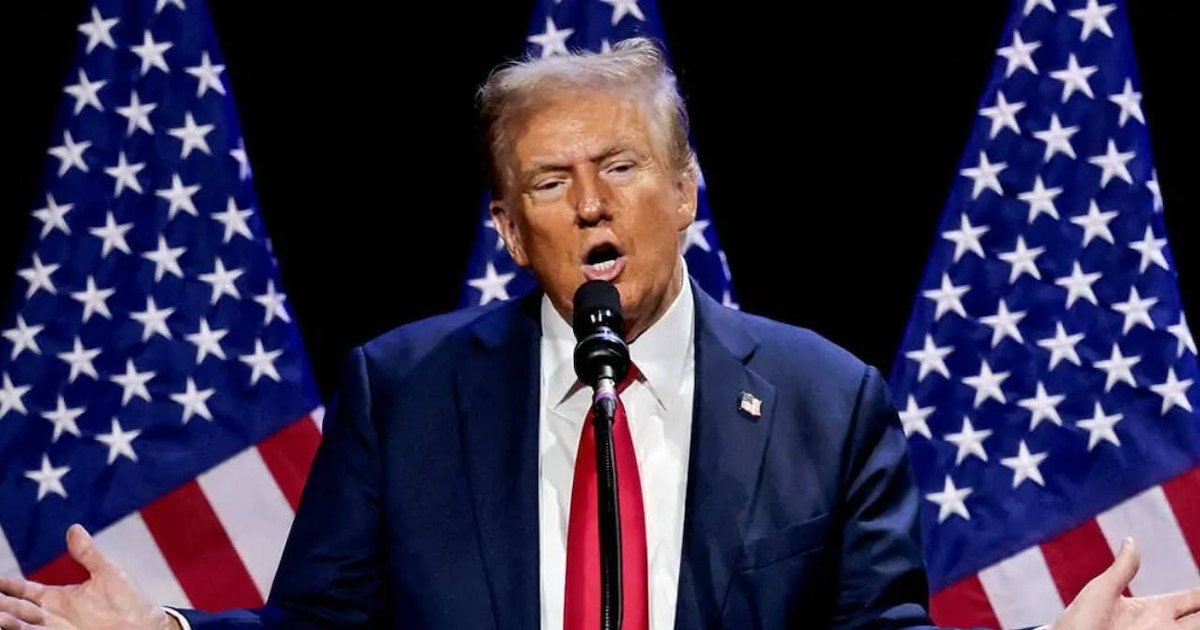
El presidente de Estados Unidos, Donald Trump, anunció este domingo que la ofensiva militar lanzada contra Irán podría extenderse durante las próximas cuatro semanas.
“Calculamos que serán unas cuatro semanas. Es un país grande, llevará cuatro semanas, o menos”, afirmó Trump en una entrevista con el diario británico Daily Mail.
De acuerdo con el líder republicano, la campaña militar ejecutada en coordinación con Israel, ha diezmado la capacidad defensiva de la República Islámica. El mandatario aseguró que la ofensiva sigue los planes previstos y que no le sorprenden los resultados alcanzados hasta ahora.
“Sacamos a toda su dirigencia, mucho más de lo que imaginamos. Parece que fueron 48”, explicó sobre el golpe a la cúpula militar y política iraní.
Trump también confirmó la muerte de tres militares estadunidenses y varios heridos durante la operación “Furia épica”.
“Son personas excepcionales, con trayectorias sobresalientes”, afirmó, al tiempo que aclaró que estas pérdidas, aunque dolorosas, son un riesgo asumido desde el inicio de la operación y no descartó que haya más bajas si el conflicto se prolonga.
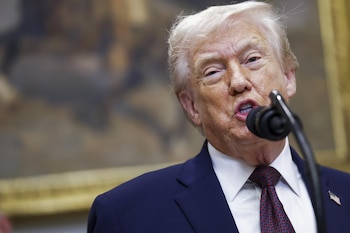
Señaló que la administración está en contacto con las familias de los soldados fallecidos y que planea reunirse con ellas en el momento adecuado.
No descartó visitar la base aérea de Dover para la ceremonia de repatriación de los cuerpos o invitar a los familiares a la Casa Blanca. “Me reuniré con sus familias cuando sea el momento apropiado”, indicó.
La misión, que empezó la madrugada del sábado, ha tenido como objetivo la destrucción de bases militares, centros de mando y sistemas estratégicos del régimen iraní.
Trump insistió en que la meta es debilitar la capacidad de respuesta de Teherán y reducir al mínimo cualquier amenaza futura para Estados Unidos y sus aliados en la región.
“Siempre ha sido un proceso de cuatro semanas… así de grande es el país, así de fuerte”, remarcó el presidente.
El mandatario estadounidense también destacó la coordinación con aliados regionales y detalló que ha mantenido conversaciones con los líderes de Bahréin, Arabia Saudita, Emiratos Árabes Unidos, Qatar, Jordania y otros países de la zona.
Consultado por el Daily Mail sobre la posible reacción militar saudita ante los ataques iniciales sufridos por su país, Trump respondió: “Ellos también están luchando”, dando a entender que la coalición internacional está alineada frente a la escalada de tensión.
Pese a la magnitud de la campaña, Trump no descartó la opción de retomar el diálogo con Teherán una vez concluyan los bombardeos, aunque subrayó que la oportunidad de negociar se perdió antes del inicio de la ofensiva.
“Quieren hablar, pero les dije que debieron hacerlo la semana pasada, no ahora”, puntualizó el mandatario, que se mostró escéptico sobre una solución inmediata, pero no cerró la puerta a futuras conversaciones si el contexto evoluciona.
Durante la entrevista, Trump aseguró que todas las acciones siguen el plan de operaciones y que las fuerzas estadounidenses mantienen la iniciativa en el terreno. El presidente anunció que en las próximas horas se dirigirá nuevamente a la nación para informar sobre el desarrollo de la operación y los próximos pasos.
Sobre el futuro de Irán, Trump expresó su esperanza en que, una vez terminados los ataques, pueda surgir una transición democrática.
“Será muy interesante ver lo que ocurre. Pueden pasar muchas cosas y muchas pueden ser positivas”, reflexionó. No obstante, advirtió que la situación sigue siendo volátil y que la prioridad del gobierno sigue siendo la seguridad de las tropas y de los intereses norteamericanos.
La Casa Blanca mantiene la expectativa de completar la campaña en el menor tiempo posible, sin descartar nuevos episodios de violencia en la región. Trump concluyó que, si bien el camino será complejo, Estados Unidos y sus aliados buscan debilitar de manera decisiva el aparato militar iraní y sentar las bases para una nueva etapa política en Oriente Medio.
(Con información de AFP)
Donald Trump,Supermartes,elecciones presidenciales,primarias republicanas,2024,política,Estados Unidos,candidato,campaña
INTERNACIONAL
If Khamenei falls, who takes Iran? Strikes will expose power vacuum — and the IRGC’s grip
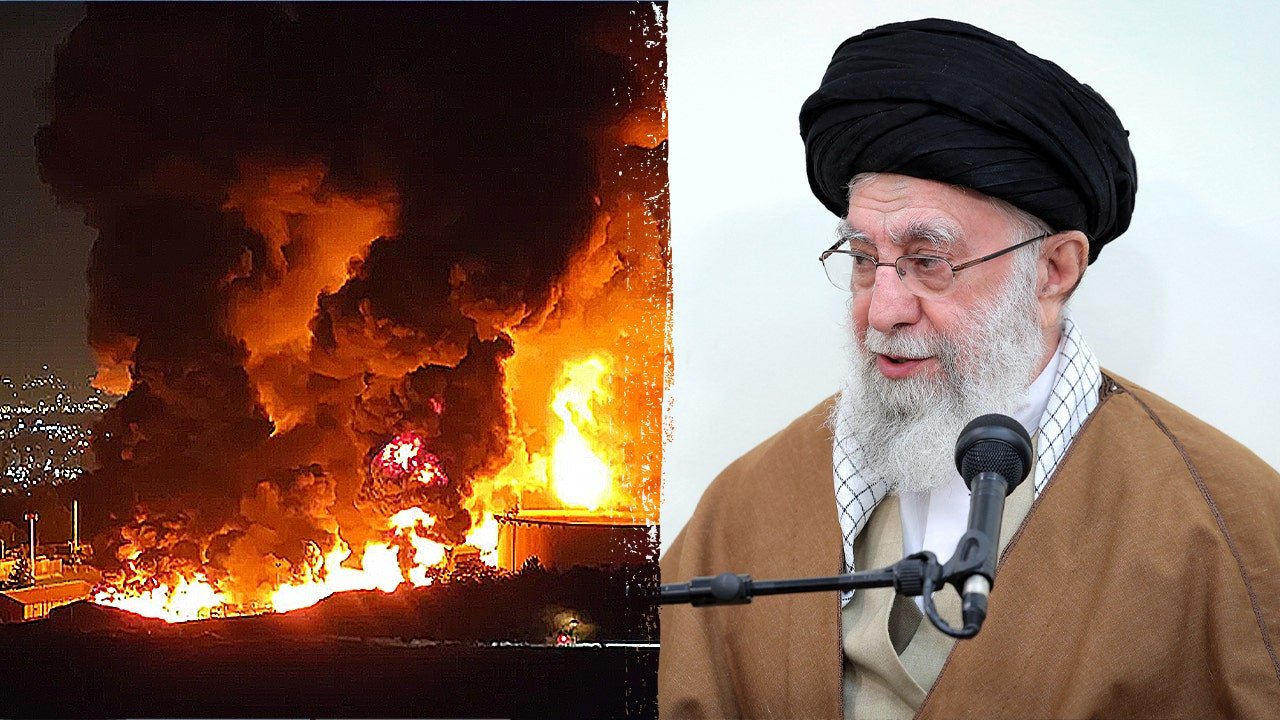
NEWYou can now listen to Fox News articles!
As U.S. and Israeli forces strike deep inside Iran — reportedly targeting senior regime officials including Supreme Leader Ayatollah Ali Khamenei and President Masoud Pezeshkian — the question of who would lead Iran if the Islamic Republic collapses is no longer theoretical.
Iran has retaliated with missile barrages against U.S. positions across the Middle East, and while Iranian state media says top leaders remain alive and have been moved to secure locations, the direct targeting of political and military leadership marks a dramatic escalation.
Yet, despite the intensity of the moment, regional analysts say there is no obvious successor poised to take control of the country.
The real power center: security forces
Experts consistently point to one determining factor: whether Iran’s coercive institutions — particularly the Islamic Revolutionary Guard Corps (IRGC) — fracture or consolidate.
If the IRGC remains cohesive, the most likely outcome is not democratic transition but a harder, more openly security-dominated system. A clerical reshuffle or military-led consolidation could preserve much of the existing power structure even if key figures are removed.
As U.S. and Israeli forces strike deep inside Iran — reportedly targeting senior regime officials including Supreme Leader Ayatollah Ali Khamenei and President Masoud Pezeshkian — the question of who would lead Iran if the Islamic Republic collapses is no longer theoretical. (Iranian Leader Press Office/Anadolu via Getty Images)
If, however, segments of the IRGC or regular armed forces defect or splinter under pressure from war and internal unrest, a political opening could emerge.
At this stage, there is no confirmed evidence of widespread security defections.
Reza Pahlavi: visible but long in exile
One of the most prominent opposition figures abroad is Reza Pahlavi, son of Iran’s last shah. He has lived outside Iran since the 1979 revolution and has spent decades advocating for a secular, democratic system.
In a recent statement, Pahlavi called the U.S. strikes a «humanitarian intervention» and urged Iran’s military and security forces to abandon the clerical regime. He declared that the Islamic Republic is «collapsing» and called on Iranians to prepare to return to the streets at the appropriate time.
But while Pahlavi has name recognition and support among parts of the diaspora, his actual base of support inside Iran is difficult to measure. He has not lived in the country for more than four decades, and many Iranians remain divided over the legacy of the monarchy.
Analysts note that symbolic visibility — including chants heard during past protests — does not necessarily translate into the organizational infrastructure needed to govern a country of nearly 90 million people.

Iranian President Masoud Pezeshkian speaks with Fox News Channel’s Martha MacCallum during an interview on September 25, 2025, in New York City. (John Lamparski/Getty Images)
Maryam Rajavi and the NCRI: organized but controversial
Maryam Rajavi, leader of the National Council of Resistance of Iran (NCRI), has taken a different approach. Her organization announced a provisional government framework aimed at transferring sovereignty to the Iranian people and establishing a democratic republic based on her longstanding ten-point plan.
In a subsequent message, Rajavi called on «patriotic personnel in the armed forces» to stand with the Iranian people and urged regime forces to «lay down their arms and surrender.» She also rejected both clerical rule and what she described as «monarchical fascism,» an apparent reference to restorationist movements linked to the former royal family.
The plan calls for dissolving the IRGC and other security institutions, separating religion from the state, abolishing the death penalty, guaranteeing gender equality and holding elections for a constituent assembly.
The NCRI presents itself as a ready governing alternative.
TRUMP ADMIN RAMPS UP ‘MAXIMUM PRESSURE’ IRAN SANCTIONS AHEAD OF NEW ROUND OF NUCLEAR TALKS
But the group — closely associated with the Mujahedin-e Khalq (MEK) — remains deeply controversial. Its history of armed struggle and years spent in exile have led many analysts to question the depth of its support inside Iran, particularly among younger generations.

Exiled Iranian Crown Prince Reza Pahlavi said the Ayatollah’s regime engages in a pattern of pretending to negotiate in earnest to buy time. (Paul Morigi/Getty Images)
While some Western political figures have expressed backing over the years, domestic legitimacy remains uncertain.
No clear heir apparent
Despite bold statements from opposition figures, experts caution that Iran’s future leadership is more likely to be shaped inside military barracks and security compounds than in exile press conferences.
Four decades of repression have hollowed out internal political alternatives. No widely recognized civilian leader inside Iran has emerged with cross-factional legitimacy.
If the regime’s leadership were to fall quickly, the immediate struggle would likely be among security elites — not between rival exile figures.
CLICK HERE TO DOWNLOAD THE FOX NEWS APP
For now, analysts say, Iran has competing visions but no consensus successor. Whether the country transitions toward a new political system, hardens into military rule or experiences prolonged instability will depend less on declarations abroad and more on whether the regime’s core power structures fracture from within.
war with iran,iran,conflicts defense,donald trump,middle east,politics,world
INTERNACIONAL
3 US service members killed, 5 seriously wounded in Iran operation

NEWYou can now listen to Fox News articles!
Three U.S. service members were killed and five others were seriously wounded as part of Operation Epic Fury, U.S. Central Command (CENTCOM) said Sunday morning.
In addition, several others sustained minor shrapnel injuries and concussions and are in the process of being returned to duty, CENTCOM announced.
«The situation is fluid, so out of respect for the families, we will withhold additional information, including the identities of our fallen warriors, until 24 hours after next of kin have been notified,» CENTCOM said.
The deaths mark the first American casualties reported in the conflict.
Smoke rises over the city center after an Israeli army launches 2nd wave of airstrikes on Iran on Saturday. (Fatemeh Bahrami/Anadolu via Getty Images)
President Donald Trump launched Operation Epic Fury on Saturday morning, eliminating Iranian Supreme Leader Ali Khamenei as well as dozens of other senior Iranian leaders, including the head of the Iranian Revolutionary Guard Corps.
The joint military operation is expected to carry on for days. Officials tell Fox News that Israel is targeting Iranian leadership, while the U.S. is targeting military targets and ballistic missile sites that pose an «imminent threat.»
Trump warned on Sunday against Iranian retaliation over the U.S. and Israeli strikes. He said that if Iran were to «hit very hard,» they would be met with «a force that has never been seen before.»
POPE WARNS ESCALATING IRAN CONFLICT COULD TIP MIDDLE EAST INTO ‘IRREPARABLE ABYSS’

A screengrab from a video released by U.S. Central Command (CENTCOM), which accompanied a press release describing the operation dubbed «Epic Fury,» an attack by the United States and Israel on Iran, shows smoke and dust rising following an explosion at an unknown location, in this image obtained from social media released on February 28, 2026. (US CENTCOM via X via REUTERS )
It comes as the Iranian regime launched strikes against U.S. interests in neighboring countries in the region in retaliation for U.S.-Israeli joint strikes against Iran’s leaders.
The Iranian response targeted all U.S. bases in the Gulf, except for U.S. bases in Oman, Fox News’ Jennifer Griffin reported.
On Sunday, Iranian airstrikes killed at least eight Israelis just miles from Jerusalem.
CLICK HERE TO DOWNLOAD THE FOX NEWS APP

A map of Western strikes against Iran (Fox News)
The strikes landed in the Israeli city of Beit Shemesh. Initial reports said four people were killed when missiles landed in a residential area on Sunday, but that death toll rose to eight, according to Israel’s national emergency service.
Fox News’ Anders Hagstrom contributed to this report.
war with iran,iran,donald trump,israel,wars,middle east

 CHIMENTOS3 días ago
CHIMENTOS3 días agoGinette Reynal dio una rotunda marcha atrás con una decisión que tomó hace dos meses: “No aguanto más”

 CHIMENTOS3 días ago
CHIMENTOS3 días agoAlarma por la salud de Divina Gloria tras salir de Gran Hermano: “La internaron directamente en terapia intensiva”

 CHIMENTOS3 días ago
CHIMENTOS3 días ago¡Titi revolucionó Gran Hermano! Cuáles son las 5 cosas que ya extraña: «Accesorios, pilates, bondiola, auriculares y bailar»















